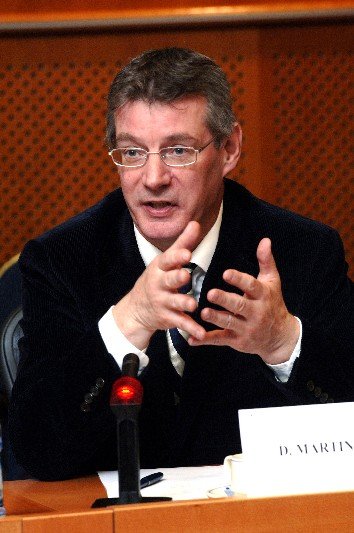Euro MP David Martin has said the controversial Anti-Counterfeiting Trade Agreement (ACTA) should be rejected by the European Parliament.
David Martin, the British MEP responsible for its report on ACTA, said the treaty threatened civil liberties.
His comments came less than three months after the previous rapporteur, Kader Arif, resigned from his post in protest at the plans.
To date, 22 EU member states have signed the agreement.
However, the treaty will need to be ratified by the European Parliament before it can be enacted.
David Martin has strongly advised that this ratification should not happen.
“The intended benefits of this international agreement are far outweighed by the potential threats to civil liberties,” he said in a written recommendation to the European Parliament.
“Given the vagueness of certain aspects of the text and the uncertainty over its interpretation, the European Parliament cannot guarantee adequate protection for citizens’ rights in the future under ACTA.”

An early discussion paper for ACTA was made public by Wikileaks in 2008, and the treaty has caused considerable controversy since.
Earlier this year, thousands of protesters demonstrated in cities including Berlin and Warsaw to share their objection to the agreement, which critics say will stifle freedom on the internet.
The “real world” action was in addition to several co-ordinated online attacks on the websites of various governments across Europe.
Concern over the treaty was heightened further when the European Commission asked the European Court of Justice to rule on its legality. The decision is still pending.
Kader Arif, who resigned as the EU’s rapporteur for ACTA on 27 January, described the negotiations as a “masquerade”.
He said: “I condemn the whole process which led to the signature of this agreement: no consultation of the civil society, lack of transparency since the beginning of negotiations, repeated delays of the signature of the text without any explanation given, reject of Parliament’s recommendations as given in several resolutions of our assembly.”
Despite these concerns, the agreement has been backed by the majority of EU member states.
A debate on the EU’s adoption of ACTA is expected to take place in June.
